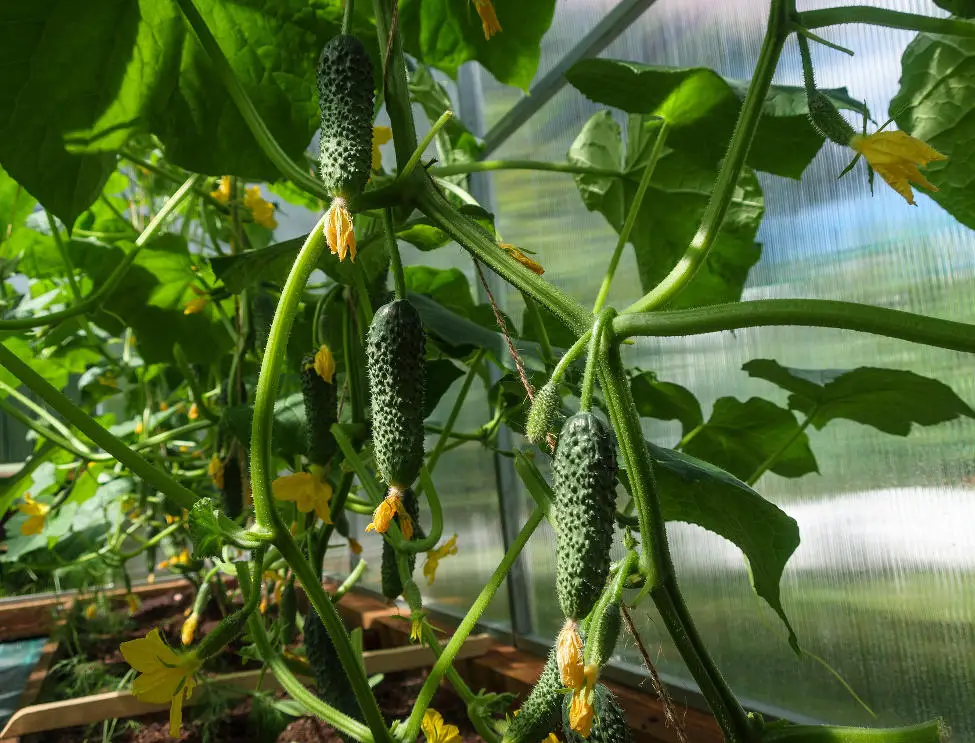Introduction: A Garden Mystery Revealed
Have you ever found yourself pondering the age-old question: Is a cucumber a fruit or a vegetable? The answer may surprise you! Join us as we embark on a journey to discover the truth behind this botanical mystery and discover the fascinating world of cucumbers.
The Botanical Definition: A Fruit in Disguise
In botanical terms, cucumbers are classified as fruits rather than vegetables. This classification is based on the scientific definition of fruits, which includes any structure that develops from the ovary of a flowering plant and contains seeds. By this definition, cucumbers fit the bill perfectly, as they develop from the flower of the cucumber plant and contain seeds within their flesh.
The Culinary Perspective: A Vegetable in Practice
While cucumbers may be botanically classified as fruits, they are often treated as vegetables in culinary contexts. This is due to their savory flavor profile and common usage in savory dishes, salads, and pickles. From a culinary standpoint, cucumbers are typically grouped with other vegetables and used in a variety of savory recipes.
The Debate Continues: Fruit or Vegetable?
Despite their botanical classification as fruits, cucumbers continue to blur the lines between fruits and vegetables, sparking debate and confusion among gardeners, chefs, and food enthusiasts alike. While some argue for their status as fruits based on botanical criteria, others maintain that cucumbers are best considered vegetables due to their culinary applications and flavor profiles.
Cucumbers in History: From Ancient Origins to Modern Cuisine
Cucumbers have a rich history that spans thousands of years, with evidence of their cultivation dating back to ancient civilizations such as Egypt and Mesopotamia. Throughout history, cucumbers have been prized for their refreshing taste and culinary versatility, making them a staple in cuisines around the world.
Nutritional Benefits of Cucumbers: A Refreshing and Nutrient-Rich Choice
Regardless of their classification as fruits or vegetables, cucumbers offer a range of health benefits that make them a valuable addition to any diet. Cucumbers are low in calories and high in water content, making them a hydrating and refreshing snack. They are also rich in vitamins, minerals, and antioxidants, including vitamin K, vitamin C, potassium, and beta-carotene.
Growing and Harvesting Cucumbers: Tips for Success
Whether you consider them fruits or vegetables, growing cucumbers can be a rewarding experience for gardeners of all skill levels. Cucumbers thrive in warm, sunny conditions with well-drained soil and plenty of water. Plant cucumber seeds or seedlings in a sunny spot in your garden or in containers, and provide support for vining varieties. Harvest cucumbers when they are firm and evenly colored, typically when they reach 15 to 20 cms in length.
Conclusion: The Cucumber Mystery Solved
In the end, whether you classify cucumbers as fruits or vegetables may depend on your perspective and context. From a botanical standpoint, cucumbers are fruits, as they develop from the ovary of a flower and contain seeds. However, in culinary terms, cucumbers are often treated as vegetables due to their savory flavor and common usage in savory dishes.
Regardless of how you classify them, cucumbers are a versatile and nutritious addition to any diet, offering a refreshing taste and a range of health benefits. So the next time you enjoy a crisp, cool cucumber in your salad or snack, remember the fascinating debate behind its classification and savor the deliciousness of this garden favorite!
